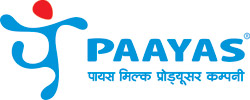Mission Milk
Mission Milk – National Dairy Plan, phase I
With average 13,000 Crore kg milk production per annum, India is the largest Milk Producing Country in the World. At present, milk sector contributes to 4% in GDP. Per Capita milk availability today is 291 gram per day. Prognosis shows that by year 2021-22, estimated milk demand in country would become 200MT per day. To meet this increasing demand, Government through its Ministry of Agriculture, has given responsibility to NDDB for 6 years with support of World Bank under the scheme National Dairy Plan, Phase–I. Key objective of the NDP-I is, to help increasing productivity of milch animals hence increasing milk production to meet the rapidly growing demand for milk and providing greater access to rural milk producers into organised milk sector.

Business Model
Traditionally, dairying has been an integral part of India’s rural economy. One in every two persons in rural areas is engaged in the dairying profession. Dairying provides relatively stable income as compared to agriculture.
A large amount of milk surplus is handled by unorganized players who neither buy milk throughout the year nor provide value as per quality of their milk. Thus, it works against the interest of the dairy farmers.
While the Milk Producer Company (A special purpose organisation for the primary milk producer under the section IX of the Co Act) is producer owned, professionally managed enterprise that provides its members collective strength, transparency and most importantly, round-the-year access to the marketplace.
One such organisation is Paayas Milk Producer Company Ltd. Paayas procures milk only from its members. To become a member, farmer needs to fulfil certain criteria i.e. member is required to pour his milk for certain number of days & quantity in a year, and must also contribute patronage linked share capital.
Once a farmer becomes member, s/he is assured for transparency in measurement of milk, timely payment (Once in ten days) and input services offered by a Paayas. Other additional advantages may include receiving dividends and patronage based incentives.
Paayas also try to reach smaller farmers and cover at least 50% small and marginal farmers, majority of whom are spread over large hinterlands. Women members are given preference.
It is vital that members are given fair deal so as to retain their interest in the dairy business and prevent them from migrating to other businesses.
On other hand Paayas focuses on supplying superior quality, fresh liquid milk to costumer despite thin margins associated with milk marketing and thus meeting requirements of urban consumers.
Paayas aspire to create strong farmer brand and communicate same to all its stakeholders.
Vision, Mission, Values

Environment and Social Activities
Paayas has identified the environmental and social impacts related to the proposed activity under NDP-I from the Environmental and Social Management Framework guidelines.
During meetings in villages and various training programmes, the importance of involving women and youth in dairying is emphasised and various issues of dairying in that particular village are discussed with the members. In order to encourage active participation of women member in dairying, Paayas has reduced the admission fees for women member to 50%.
Paayas has instituted Gender sensitization initiatives in all its events. Women empowerment is a separate topic been exclusively presented to Sahayaks in their Orientation programmes. A recent batch of associates from a consultancy, hired for imparting Producer Awareness Programme to farmers/members, were trained over Women’s role in dairy and with their support this message which reach to all women members of Paayas making them aware and enlightened. Efforts are been made to recruit women LRPs, Technical Officers, MAITs and Veterinary Executives, as many as possible. In coming time, we are planning to prepare biographies of women entrepreneurs from Rajasthan and showcase it in various Women Awareness Programmes been planned Apart for these activities, several other topics viz. ill effects of cigarette smoking, chewing Gutka & alcohol consumption are presented and discussed in all trainings at field level. Other important environment related topics like Global warming, Clean Milk Production, Animal Shelter Management, Pest Management, Personal Hygiene, Water management,Air pollution, Electricity hazards & Road safety etc are demonstrated to employees during trainings and programmes.


